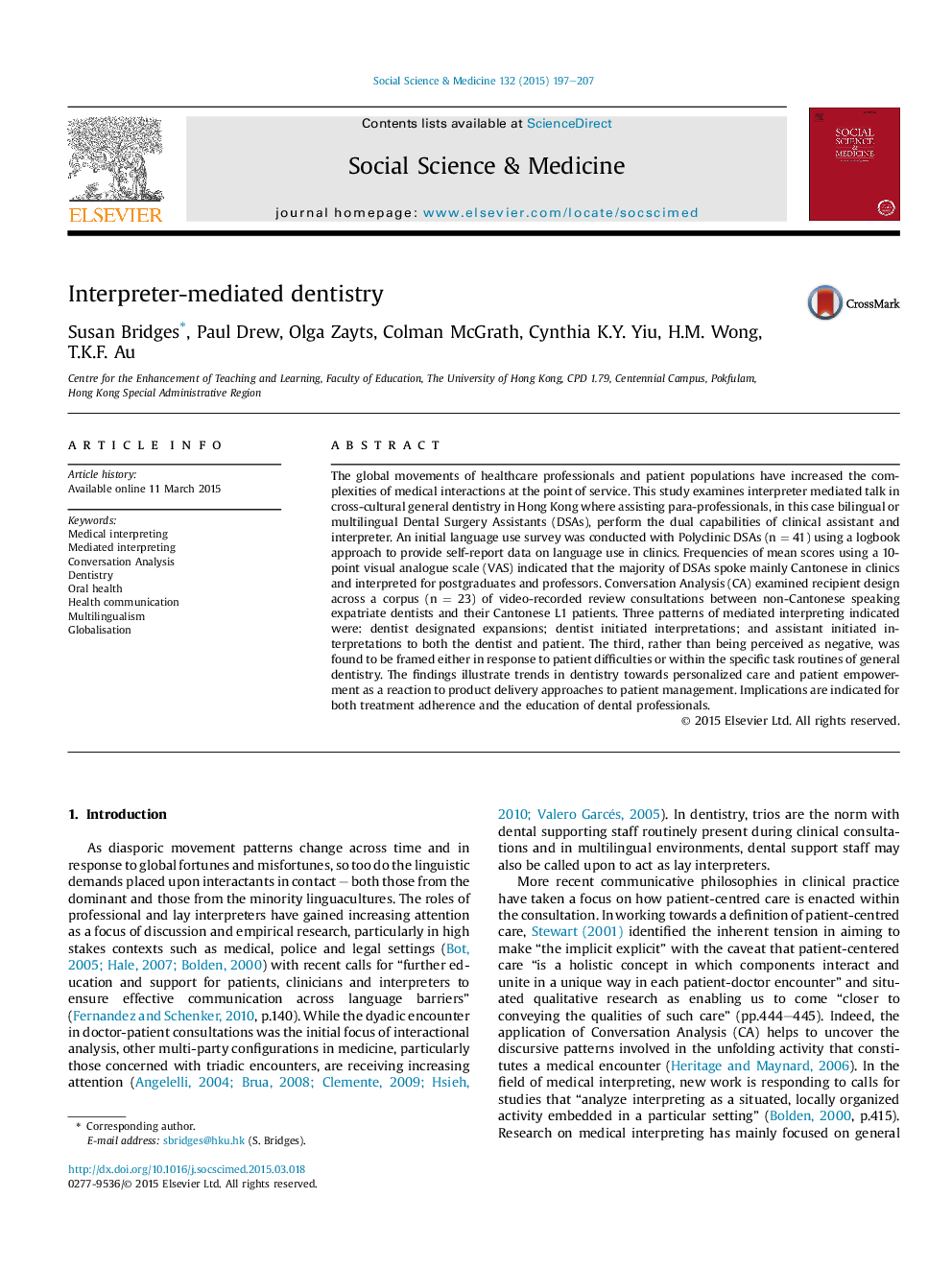| Article ID | Journal | Published Year | Pages | File Type |
|---|---|---|---|---|
| 7332864 | Social Science & Medicine | 2015 | 11 Pages |
Abstract
The global movements of healthcare professionals and patient populations have increased the complexities of medical interactions at the point of service. This study examines interpreter mediated talk in cross-cultural general dentistry in Hong Kong where assisting para-professionals, in this case bilingual or multilingual Dental Surgery Assistants (DSAs), perform the dual capabilities of clinical assistant and interpreter. An initial language use survey was conducted with Polyclinic DSAs (n = 41) using a logbook approach to provide self-report data on language use in clinics. Frequencies of mean scores using a 10-point visual analogue scale (VAS) indicated that the majority of DSAs spoke mainly Cantonese in clinics and interpreted for postgraduates and professors. Conversation Analysis (CA) examined recipient design across a corpus (n = 23) of video-recorded review consultations between non-Cantonese speaking expatriate dentists and their Cantonese L1 patients. Three patterns of mediated interpreting indicated were: dentist designated expansions; dentist initiated interpretations; and assistant initiated interpretations to both the dentist and patient. The third, rather than being perceived as negative, was found to be framed either in response to patient difficulties or within the specific task routines of general dentistry. The findings illustrate trends in dentistry towards personalized care and patient empowerment as a reaction to product delivery approaches to patient management. Implications are indicated for both treatment adherence and the education of dental professionals.
Keywords
Related Topics
Health Sciences
Medicine and Dentistry
Public Health and Health Policy
Authors
Susan Bridges, Paul Drew, Olga Zayts, Colman McGrath, Cynthia K.Y. Yiu, H.M. Wong, T.K.F. Au,
